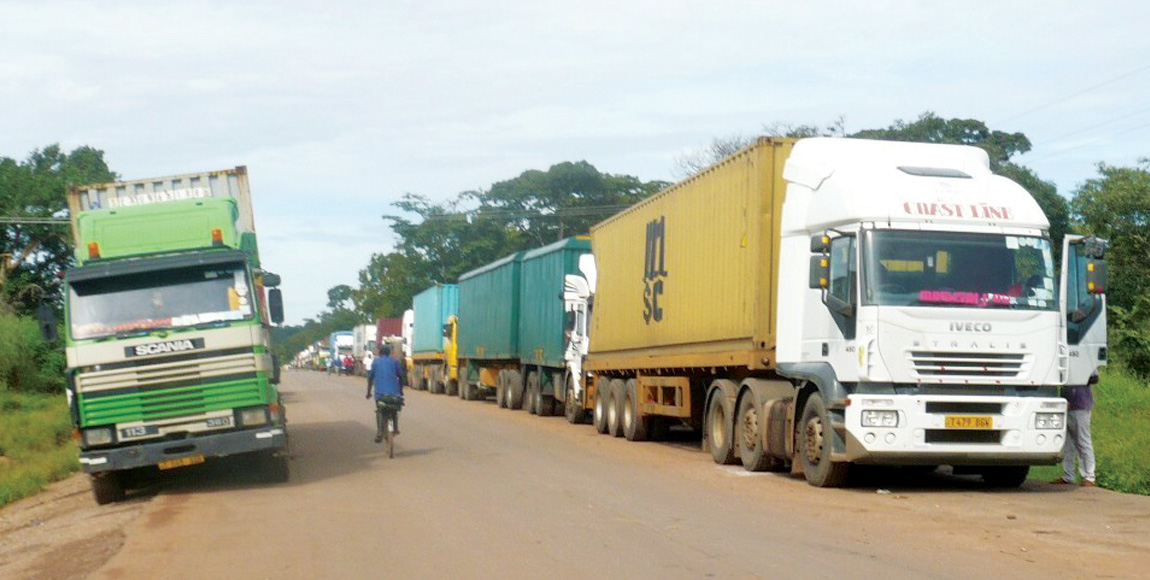Border-post procedures in need of an overhaul

Border crossings in southern Africa are fraught with disaster – and South Africa is not immune to the probability of falling victim to high-risk incidents
Safety and security at border posts along trade corridors in southern Africa pose significant risks for transporters. With widespread theft and pilfering from trucks that are stranded in long queues while waiting to cross from country to country, drivers say they are afraid to leave their vehicles unattended for any length of time.
The situation gets worse at night when, asleep in locked cabs to protect their safety, they are powerless to prevent the theft of items that are easily accessible from the outside of the truck, among them batteries, spare wheels and tarpaulins.
Life for a truck driver tasked with delivering goods across borders entails many anxious hours or even days of waiting in line for clearance to pass through, first the one side, then the other. After delivering the cargo and re-loading with a return consignment, the daunting prospect of transiting the border in reverse direction lies in store.
Vendors ply their trades up and down the line of trucks and often shanties spring up along the length of the queues to supply food, drink and even prostitutes to the waiting throng. Often, local delicacies are cooked on open fires, posing a significant safety risk to vehicles, cargoes and drivers – especially when tankers carrying petroleum products are in the queues.
Over the years there have been a number of fire-related disasters which have claimed the lives of those waiting in line, along with their vehicles and cargoes.
In 2014, at Kasumbalesa, a collision between two tankers in the queue caused a fuel spillage, that spread to an area in which an open fire was being used for cooking purposes. The ensuing fireball resulted in loss of life, injury and the destruction of 43 vehicles and their cargoes.
Last year, in a designated parking area at the Rusumo Border Post between Rwanda and Tanzania, a fully laden fuel tanker crashed into a line of trucks waiting to pass through the check point.
The explosion that followed claimed the life of the tanker driver and destroyed six vehicles and their cargoes. The nearest emergency services responders were 140 km away in Kigali. By the time the first of them arrived by way of military helicopter, all they could do was douse the smouldering remains of the vehicles with the fire buckets they had brought along for the purpose.
Also in 2019, on the outskirts of Morogoro in Tanzania, after being involved in a collision with a motorcycle, a petrol tanker rolled onto its side, spilling its contents. A crowd immediately converged on the scene with buckets and containers to scoop up the fuel, which suddenly ignited. The tanker exploded, killing more than 70 people and injuring another 50. The tragedy could have been averted if first responders or emergency personnel had been on hand to disperse the crowd and secure the area to contain the spillage.
In Fesarta’s view, it is high time governments and authorities at border posts within the southern African region take note of these kinds of dangers and implemented procedures aimed at making border crossings safe and efficient.
For instance, clearance of trucks carrying dangerous or hazardous goods, livestock or refrigerated products should be fast-tracked. Vehicle queues should be properly policed and protected. First responders to incidents should be stationed nearby and be properly equipped to deal with emergencies. These are just a few of the issues that need fixing – and for which Fesarta is striving.
And don’t think South Africa is immune to these high-risk situations. Border posts such as Biet Bridge, Grobelarsbrug, Kopfontein and Skilpadshek are all vulnerable to the types of disasters that have afflicted Kasumbalesa, Rusumo and
Morogoro.
Published by
Mike Fitzmaurice
focusmagsa




